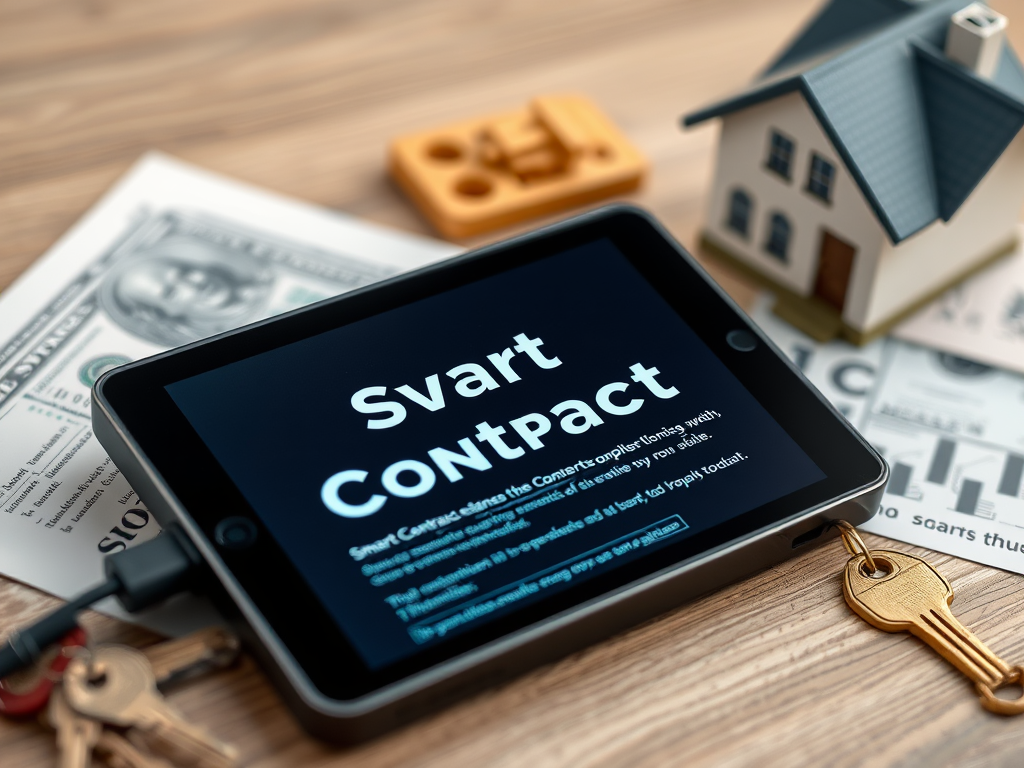Smart contracts, integral to blockchain technology, are revolutionizing Dubai’s property market by significantly enhancing transparency, efficiency, and security in real estate transactions. These self-executing contracts, with the terms of the agreement directly written into code, eliminate the need for intermediaries, thus reducing costs and expediting processes. As Dubai continues to position itself as a global real estate hub, understanding the profound impact of smart contracts is crucial for stakeholders, investors, and buyers alike. This article explores the transformative role of smart contracts in Dubai’s property landscape, the benefits they offer, and the challenges they pose.
Understanding Smart Contracts

Smart contracts are digital agreements that automatically execute and enforce themselves based on predetermined conditions recorded on a blockchain. Essentially, they are lines of code programmed to carry out specific instructions when certain conditions are met. The key characteristics of smart contracts include:
- Automation: Once deployed, they act without human intervention, which decreases the time taken to complete transactions.
- Security: Utilizing blockchain technology, they are encrypted and more resistant to tampering compared to traditional contracts.
- Transparency: Both parties can access the contract, ensuring all information is visible and verifiable.
- Cost-effectiveness: By minimizing the need for intermediaries, transaction costs are significantly lowered.
- Immutability: Once recorded, the terms cannot be altered, adding an additional layer of trust.
Effects on Transaction Efficiency

One of the most significant impacts of smart contracts on Dubai’s property market is the enhancement of transaction efficiency. The traditional process of buying and selling property involves numerous steps, including negotiations, paperwork, and legal approvals, which can be time-consuming and cumbersome. Smart contracts simplify this process by enabling:
- Instantaneous Transactions: Real estate deals can be completed in minutes rather than weeks, expediting ownership transfers.
- Reduced Paperwork: Digital documentation minimizes the reliance on physical paperwork, streamlining the entire process.
- Real-time Monitoring: Stakeholders can track the status of the contract in real time, increasing transparency and trust among parties.
- Lower Error Rates: Automated processes reduce human error, creating a smoother and more reliable transaction.
Trust is a significant concern in real estate, where large sums of money are at stake, and the risk of fraud is prevalent. Smart contracts address these issues head-on by establishing a more secure transaction environment. Key aspects include:
- Verification of Ownership: Smart contracts can include digital verification of ownership, ensuring that properties are legitimate and free of encumbrances.
- Immutable Records: The blockchain’s immutable nature guarantees that once a transaction is recorded, it cannot be altered or deleted.
- Conditional Payments: Payments are only released based on completion of agreed conditions, safeguarding funds until obligations are fulfilled.
- Pseudonymity: Buyers and sellers can transact without disclosing their identities, adding an additional layer of privacy and security.
- Access to Smart Contract Audits: Stakeholders can audit previous contracts on the blockchain to assess trustworthiness and reliability.
Challenges in Implementing Smart Contracts
Despite the myriad benefits, the implementation of smart contracts in Dubai’s property market is not without challenges. These hurdles must be navigated carefully to fully leverage the potential of blockchain technology. Some of the key challenges include:
- Legal Recognition: The legal status of smart contracts is still being defined in many jurisdictions, which can lead to uncertainties in enforcement.
- Integration with Existing Systems: Legacy systems within the real estate market must be adapted to accommodate blockchain technology often requiring substantial investment.
- Technical Expertise: There is a lack of skilled personnel who understand both real estate and blockchain, which may limit adoption rates.
- Regulatory Framework: The evolving regulations surrounding cryptocurrency and blockchain create unpredictability in how smart contracts will be governed.
- Market Resistance: Traditionalists in the real estate sector may resist changes, preferring established methods over innovative technologies.
Итог
Smart contracts are poised to transform Dubai’s property market, bringing paramount efficiency, security, and trust into real estate transactions. While the benefits are numerous, stakeholders must also be aware of the associated challenges to ensure a seamless transition to this new paradigm. As technological advancements continue to unfold, the implementation of smart contracts may redefine the landscape of property transactions in Dubai, setting a precedent for global markets. The ongoing dialogue between technology and real estate will be central to overcoming the hurdles and maximizing the advantages of this revolutionary approach. With careful navigation, smart contracts hold the promise of a brighter, more efficient future for Dubai’s real estate sector.
Часто задаваемые вопросы
1. What are smart contracts?
Smart contracts are self-executing contracts with the terms of the agreement written directly into code, which functions on a blockchain platform. They automate the execution of transactions, reducing the need for intermediaries.
2. How do smart contracts improve transparency in real estate?
Smart contracts maintain a public ledger on the blockchain, allowing all parties to verify transaction history and ownership records, promoting a much clearer and more transparent buying and selling process.
3. Are smart contracts legally binding?
The legal status of smart contracts is still evolving and may vary by jurisdiction. Generally, if the terms are clear and agreed upon by all parties, smart contracts can be considered legally binding, but this varies in different regions.
4. What challenges do smart contracts face in the property market?
Challenges include legal recognition, integration with existing systems, the need for technical expertise, evolving regulatory frameworks, and resistance from traditionalists in the market.
5. Will smart contracts eliminate real estate agents?
While smart contracts can streamline many processes and reduce reliance on intermediaries, they do not completely eliminate the need for real estate agents, who provide valuable services such as negotiation, local market expertise, and guidance through the buying process.


